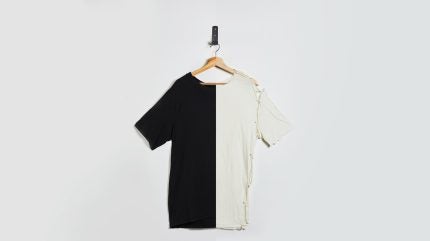
Under the strategic partnership Circ will use Selenis’ polymerisation infrastructure and technical knowledge to convert recycled monomers derived from end-of-life textiles into premium-grade Circ Polyester.
This material is suitable for various apparel segments, including activewear, essentials, and high fashion. The partnership aims to provide a scalable, circular solution that can be easily integrated into current supply chains.

Discover B2B Marketing That Performs
Combine business intelligence and editorial excellence to reach engaged professionals across 36 leading media platforms.
This collaboration is set to enhance the commercial production of Circ Polyester within Europe. It is also in line with the company’s efforts to offer circular alternatives for polyester and synthetic cellulosics like lyocell within the fashion industry’s supply chain.
Circ CEO Peter Majeranowski said: “Selenis has been a long-standing partner in our journey, and we’re proud to take this next step with them to bring Circ Polyester to market at industrial volumes. This is also a defining moment that affirms Circ’s dual-product strategy, offering both recycled lyocell and polyester — as we meet growing demand for circular materials across categories.”
Selenis, headquartered in Portugal, specialises in creating high-performance polyesters for diverse markets. Their alliance will propel the development of the next generation of recycled polyester and broaden the spectrum of circular solutions accessible to fibre producers, textile mills, and fashion brands.
Selenis CEO Duarte Matos Gil said: “This partnership reflects our commitment to reducing waste and scaling up advanced recycling solutions. “Circularity is no longer a concept; it must become an industrial reality. Whether it is bottle-to-bottle or textile-to-textile, the goal is the same: materials must complete a full life cycle and return as high-quality products, again and again. A bottle should become a new bottle, not downcycled. A garment should be reborn as another garment, not wasted. To achieve this on a scale, we need both innovation and regulation. Supportive, forward-looking legislation is essential to unlock investment and create a level playing field for truly circular systems.”

US Tariffs are shifting - will you react or anticipate?
Don’t let policy changes catch you off guard. Stay proactive with real-time data and expert analysis.
By GlobalDataThe partnership signifies progress in addressing environmental concerns associated with fast fashion and underscores advancements made by both companies in promoting textile circularity on an international scale.
Selenis corporate strategy global head Eduardo Santos said: “While the world was focused on recycling for packaging, our strategy since 2022 was to lead textile circularity.
“We committed our resources and innovation to explore the textile side of the problem, even when our core business was in plastics.”
In March this year, Circ concluded its $25m funding round to scale its technology on an industrial-scale.





